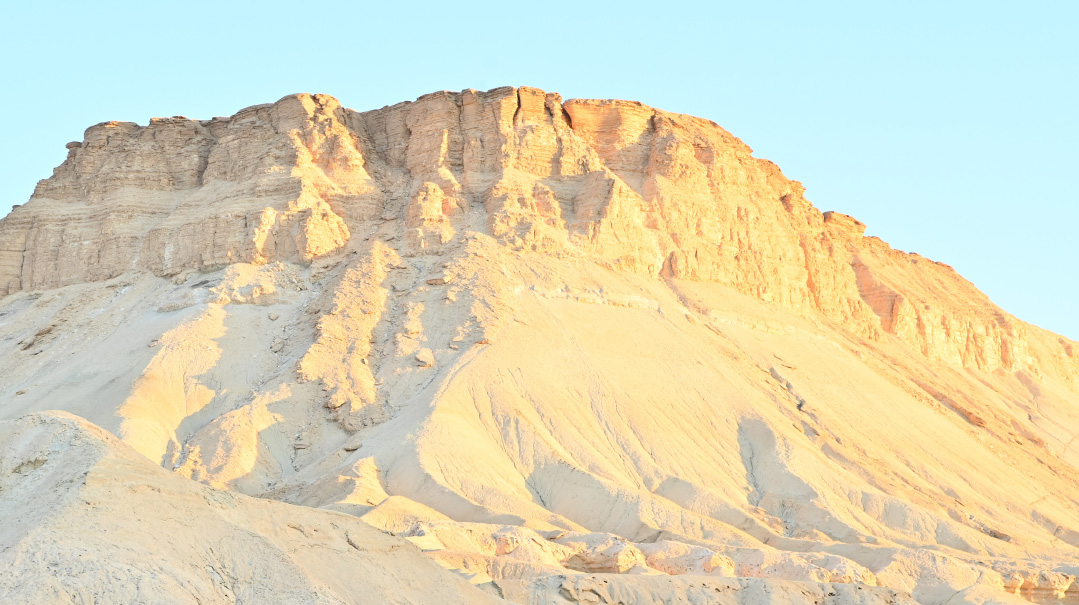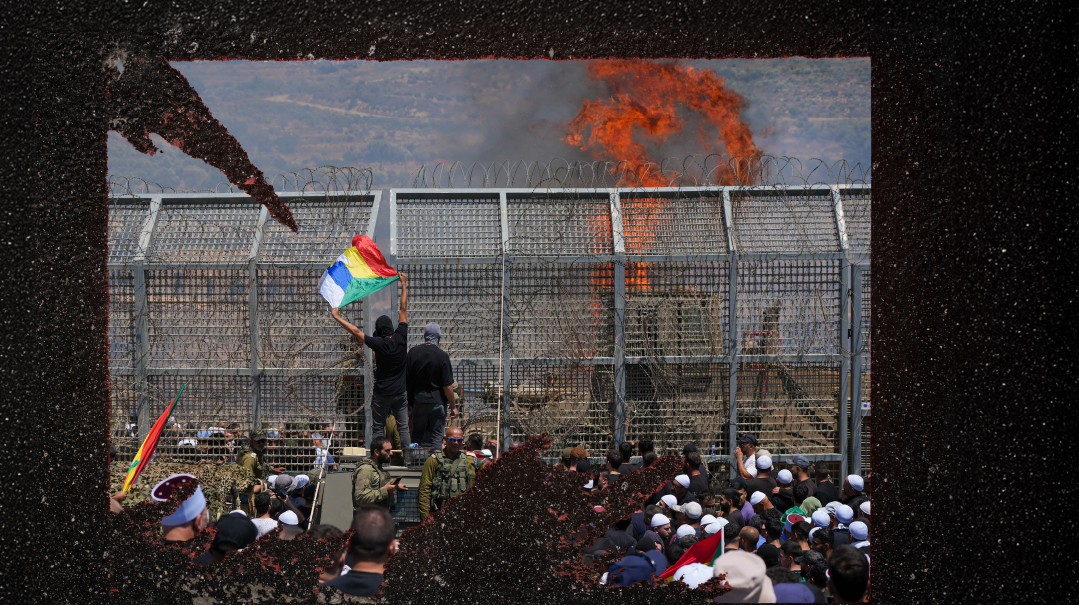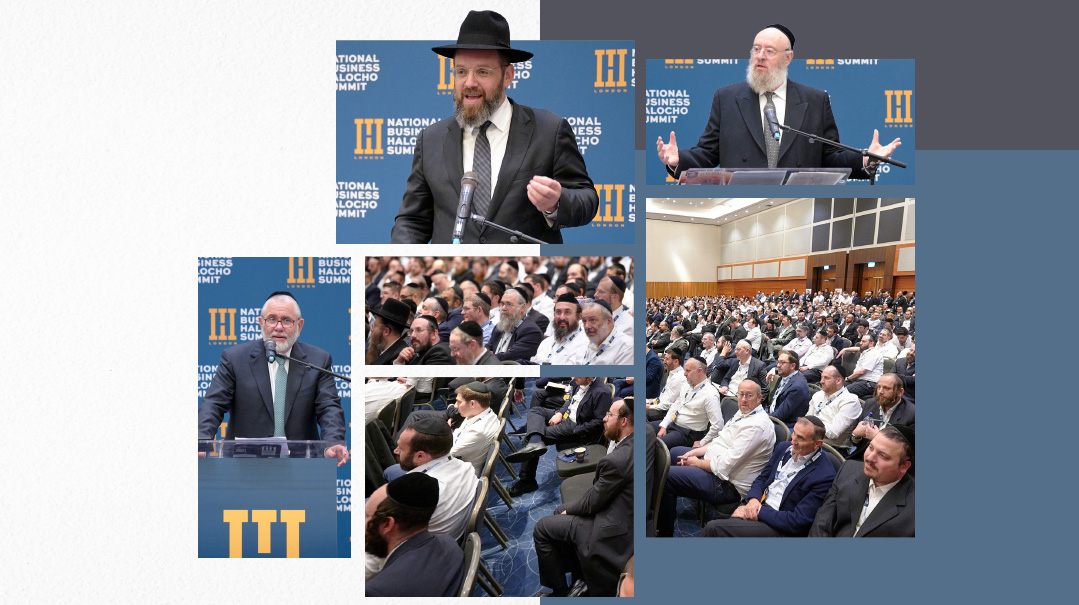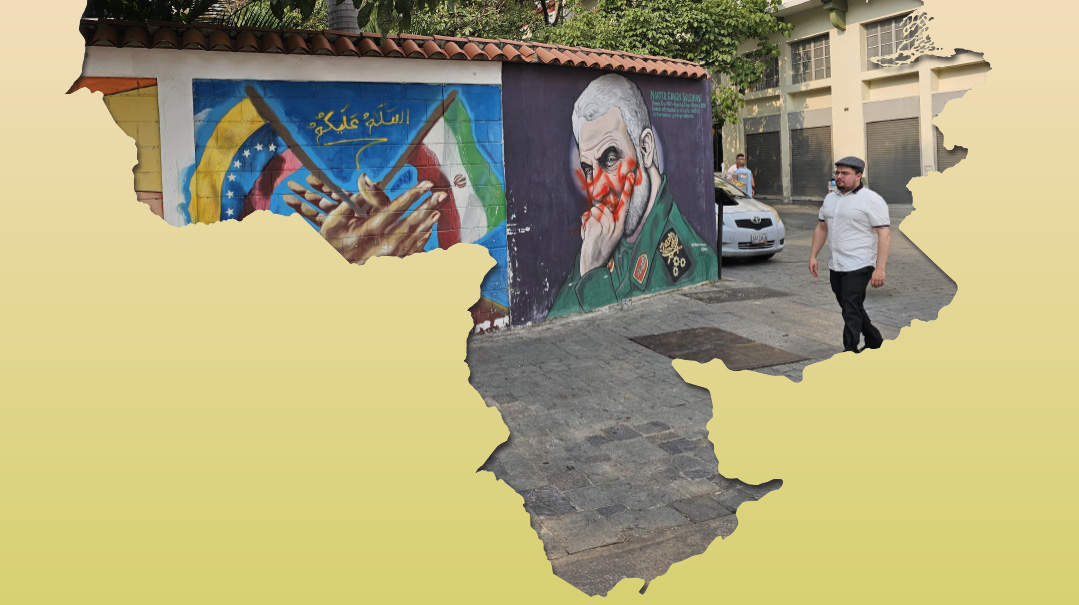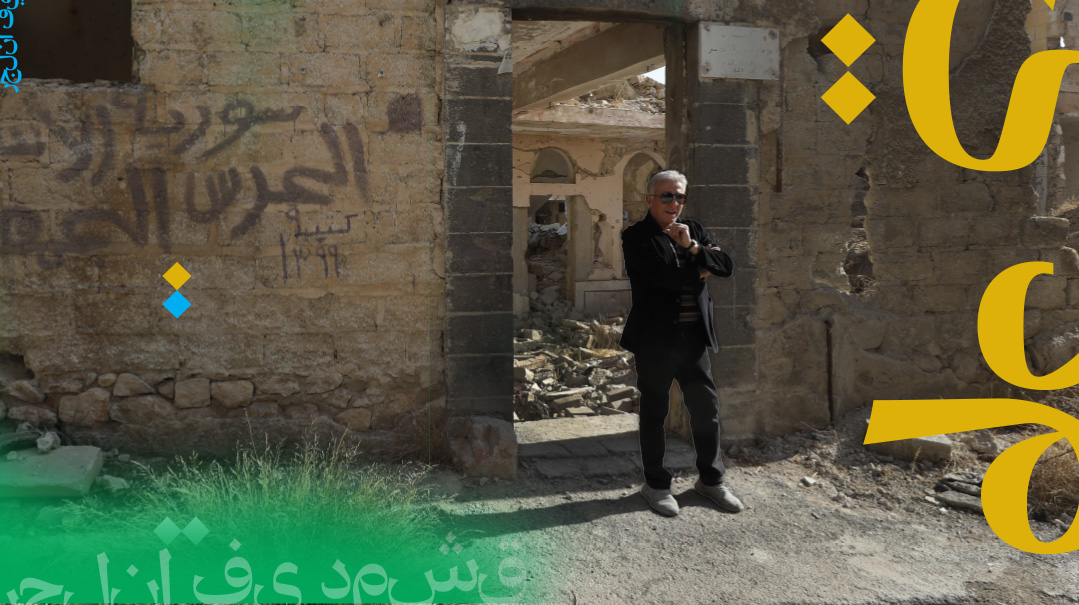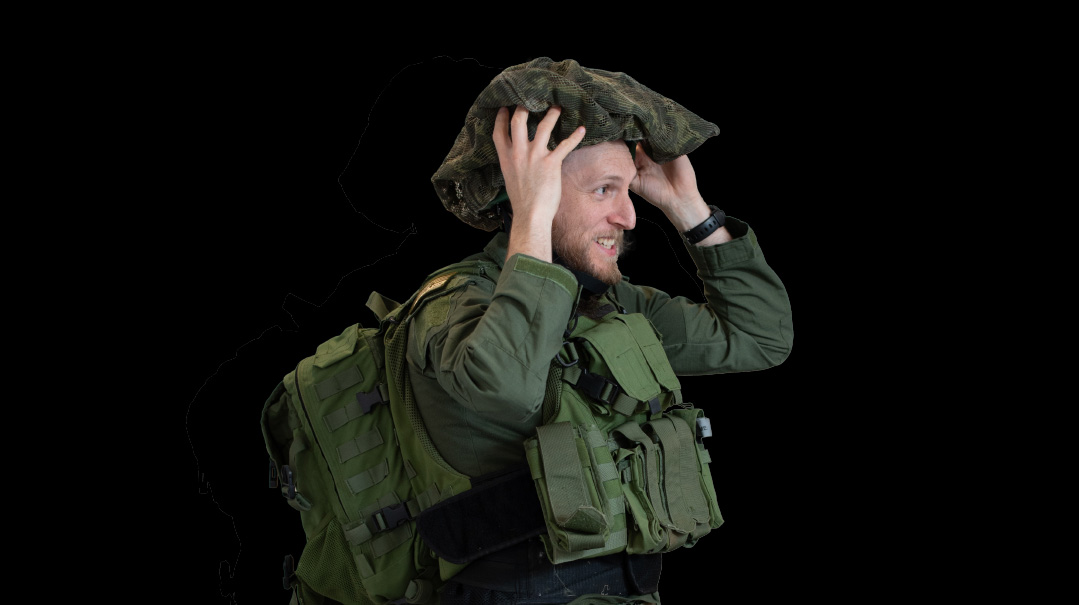Family Ties
| August 12, 2020From Tzfas in the north to Netivot and Beer Sheva in the south, it’s a new generation of family rabbanim
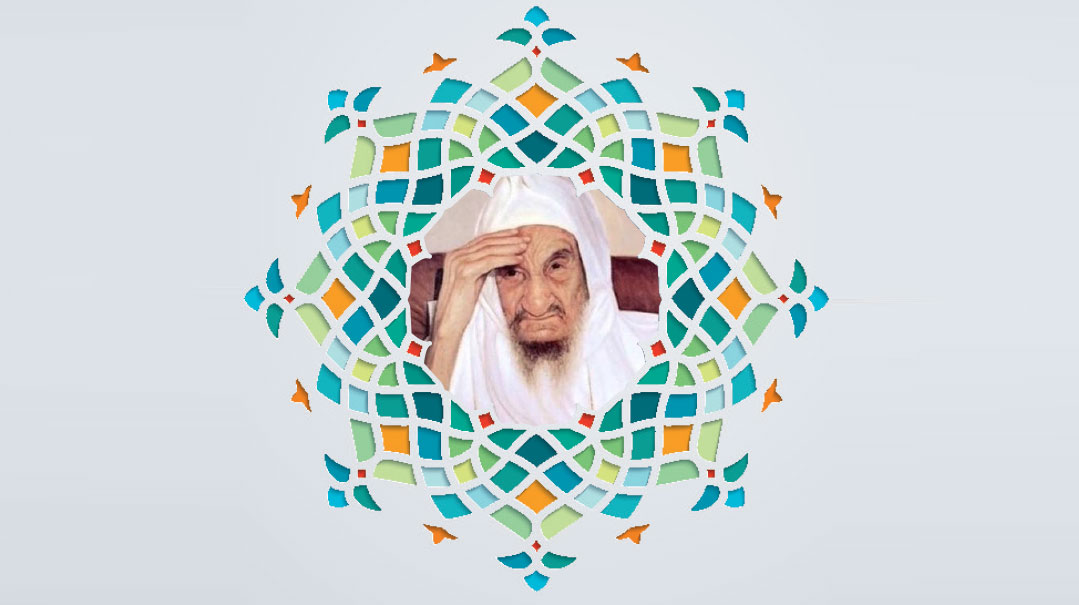
It all began with a straw mat. The famous story – passed down through the generations among the Jews of Northern Africa – goes back about four hundred years to the Holy City of Jerusalem, where lived the mekubal Rav Shmuel Elbaz zy”a, a talmid of the Arizal’s disciple Rav Chaim Vital. Rav Shmuel was a lofty soul who worked tirelessly to help the poor of the city. Throughout his life, the tzaddik sat on a simple straw mat as he learned Torah and engaged in spiritual contemplations. At one point, Rav Shmuel was sent abroad to raise money for the poor of Jerusalem, but when he arrived at the Jaffa Port, he was told that he didn’t have enough money to pay for passage, and the captain refused to allow him to board. With no other choice, Rav Shmuel unfolded his mat, placed it on the choppy waters and calmly sat down on it. He raised his eyes to Shamayim, offered up a prayer, and the mat began sailing on the Mediterranean Sea, soon overtaking the ship as the captain and astonished passengers looked on.
The captain called to Rav Shmuel, asking forgiveness and offering him to board the ship for free. But Rav Shmuel refused -- if it was already necessary to alter nature on his behalf, why should he have to associate with drunken gentile sailors? He would remain on his mat, with no spiritual distractions, until he reached his destination.
Afterward, the Jews of the time gave him the name “Abu-chatzira” – father of the mat.
Over the years, Rav Shmuel’s descendants left Eretz Yisrael due to persecution against the local Jews. According to family history, they sought a place where they could immerse themselves in Torah learning without harassment, settling in the Tafilalt district of eastern Morocco. One of Rav Shmuel's progeny, Rav Moshe (Masoud), became rav of the city, and Rav Moshe's son Yaakov -- known as the holy "Abir Yaakov” -- succeeded his father as rav of Tafilalt. The Abir Yaakov, considered the patriarch of the Abuchatzeira dynasty, was buried in Damanhour, Egypt, after he fell ill en route trying to reach Eretz Yisrael, but his descendants remained in Morocco, where they established Torah around the country.
His son Rav Moshe (Masoud) became rav of Tafilalt, and Rav Moshe’s children – Rav Yitzchak (known as the Baba Chaki, who became rav of Ramle), Rav Yisrael (the Baba Sali, who eventually settled in Netivot), and Rav David (who succeeded his father as rav of Tafilalt, where he was horrifically murdered in a pogrom in the city in the 1920s, where a decree was enacted to kill all Jews who didn’t flee) – essentially moved the dynasty back to Eretz Yisrael where it all started.
Throughout the years, many miracle stories have been attributed to the tzaddikim of the Abuchatzeira family, and especially to the Baba Sali, whose acts of bending nature often revolved around a bottle of Arak – poured free like water -- at the hilulas of tzaddikim or at seudos marking other special days.
During my childhood, I was riveted by stories from my grandfather, Rav Nissim Amsalem ztz”l, a brother-in-law of the Baba Sali. My grandfather was a neighbor of the Abuchatzeira family after they fled to the town of Bodniv, and witnessed countless miracles. He learned bechavrusa each day with the Baba Sali and his son Rav Meir a”h – a hidden tzaddik who predeceased his father.
The generations move on, but the Abuchatzeira family continues to lead the Sephardic Torah world -- third and fourth generation progeny who live among us today, leading various communities around Eretz Yisrael and beyond.
Yet we’re not here to re-introduce you to the more famous personalities of the family – the Baba Sali’s son Rav Baruch, or the sons of Rav Meir -- Rav David Chai Abuchatzeira of Nahariya and his brothers Rav Yekutiel and Rav Raphael of Ashdod, and Rav Elazar a”h (murdered in his beis medrash in 2011), or the sons of the Baba Chaki who are famed for their power of brachah.
Indeed, the branches of the family have spread; and while they still receive the public for advice and brachos, they’ve moved away from the miracle stories and prefer to spend their days in the beis medrash, teaching Torah to a new generation.
WHO NEEDS THE HONOR?
Rav Moshe Abuchatzeira, Netivot
Son of Rav Baruch (known as Baba Baruch), the Baba Sali’s son
“He can engage a gadol hador, and then sit down to converse with a simple Jew”
The adherents of Rav Moshe Abuchatzeira, the well-known son of the Baba Baruch, aren’t big fans of miracle stories. Maybe it’s because his cousins are more famous, their stories more impressive. Either way, instead of miracles and wonders, Rav Moshe’s chassidim speak of a daily schedule packed with shiurim, about the fasts that he undertakes, and most notably, about his constant flight from any type honor.
As a bochur, Rav Moshe learned in the litvish Ma’alos HaTorah yeshivah under Rav Shmuel Auerbach, which, say those close to him, is why his learning schedule looks the way it does. After a sunrise davening, he first learns alone, and then he has a learning seder with his uncle, Rav Shimon Bussu. They’ve been learning Shas and poskim every day for years already.
Afternoons find Rav Moshe in the kollelim that he heads – one near his home, and on at the tziyun of the Baba Sali (the Shas kollel, now near the Baba Sali’s grave, was actually started by the Baba Sali in his lifetime, and there are still avreichim there from before the Baba Sali’s petirah in 1984).
In the evening, Rav Moshe travels around the country giving shiurim. Each Tuesday, he has a regular shiur at the Baba Sali’s tziyun, close to home, but has rejected proposals to make that shiur into a public event. “Anyone who wants to come and listen is invited,” he says, “but to publicize it makes the whole shiur into a party.”
Rav Moshe is known as an expert on the seforim of his great-great grandfather, the Abir Yaakov, citing from them often, and is the family go-to person when it comes to information on their progenitors, all the way back to Rav Shmuel Elbaz.
While the funding for his kollelim comes from philanthropists, “the Rav invests his efforts solely in learning, moving the money along when it comes in,” says a long-time associate. “If a person gives him a donation for the kollel and needy families, within the hour, the funds have made their way to a family that needs the help.”
Rav Moshe doesn’t have public receiving hours, because it’s not something he wants to promote. “Anyone interested in speaking to him calls the secretary of the kollel and asks when it’s a good time to come,” says the avreich. “People come to consult him on all sorts of matters.”
Still, he might meet with several hundred people over the course of a week. Some of them come to the kollel and others find him at his shiurim around the country. But as much as he doesn’t seek the public, “he’s a very friendly person,” says the avreich. “People are drawn to him because he relates to them at their level. He can engage a gadol hador, and then sit down to converse with a simple Jew.”
Each afternoon when he visits the tziyun of his grandfather, he mentions the names of all those who have turned to him that day for advice or a brachah. While he’s there, mispallelim often ask him to bless them, as a grandson of the tzaddik.
“He’s happy to accommodate for the sake of making another Jew happy,” a family member says, “but he’s really not interested in all the public attention. He’d rather just be learning and teaching Torah.”
FROM SHABBOS TO SHABBOS
Rav Shimon Bussu, Jerusalem
Son of Rav David Bussu, the Baba Sali’s son-in-law, and Rabbanit Avigayil, the Baba Sali’s oldest daughter
“He knows what is needed and what is good for the soul of each one of these callers”
The Bais Buchris shul on Gershonovitz street in Netivot is bustling with people during the morning hours. There are a number of tefillah rooms where minyanim take place one after the other, from dawn until late morning.
The regular mispallelim at the 7:00 minyan already know the mekubal Rav Shimon Bussu. Each morning he’s there, but he doesn’t come to daven – he’s already davened Shacharis at the sunrise minyan; instead, he sits with a sefer and waits patiently until the chazzan gets to Kedushah and Birchas Kohanim. Then he gets up and continues on to the next minyan.
“The Rav is strict about hearing Kedushah and Birchas Kohanim a number of times. I’m not privy to the meaning of this practice, but with Rav Shimon, much is concealed,” says one of his talmidim.
Rav Shimon Bussu doesn’t have gabbaim or attendants and he is not in charge of mosdos – he’s more like a one-man learning operation, leaving his Jerusalem home on Sunday and returning on Friday, isolating himself in the dalet amos of Torah and tefillah around the clock during the week.
Rav Shimon has a special relationship with his cousin, Rav Moshe Abuchatzeira, son of the Baba Baruch. The two learn for a number of hours each morning in Rav Moshe’s kollel near his home in Netivot, where Rav Shimon spends most of his week.
While he has a strict daily learning schedule that goes from morning to night, there are times when he’s reachable by phone, and those who need to consult with him know how to reach him. Those close to him know when he’s available, and when he won’t answer his phone. They know that when he’s learning, his phone isn’t anywhere nearby. They also know that he will often refer them to another rabbinic authority.
“He knows what is needed and what is good for the soul of each one of these callers,” says Yosef, a longtime talmid. “I’ve seen it clearly. Several times, I saw that the Rav knew things about me when I came to him — he knew what I was weak in and what I needed to strengthen myself in. I don’t always understand, but I always do what the Rav tells me.”
Rav Bussu’s disciples are not united in a specific community – they’re individuals scattered around the country. His talmidim admit that it would be special if there were some type of kehillah under his leadership, but, they say, “the Rav flees from these things.”
Rav Shimon has a holy custom of fasting a number of days each week. “It’s not a fixed schedule,” says Yosef, “but when the Rav sees a certain need, he fasts and davens extensively. I’m not privy to why.” During the six-week winter Shovavim period, Rav Shimon keeps a taanis hafsakah from Motzaei Shabbos until Shabbos. “During that week, he secludes himself from all those around him and doesn’t answer the phone. He only engages in Torah.”
HIDDEN AND REVEALED
Rav Shlomo Bussu, Jerusalem
Son of Rav David Bussu, the Baba Sali’s son-in-law (and brother of Rav Shimon Bussu)
“It’s best to be under cover, to be nistar. Something that is hidden cannot be compared to that which is known by people”
You have to climb the rickety stairs at the side of a print shop in Jerusalem’s Givat Shaul neighborhood in order to get to Beit Medrash Tiferet L’Yisrael, but for those who know Rav Shlomo Bussu, the location is really no surprise — his shul is tucked away, just as he’s been all these years.
Rav Shlomo Bussu, who keeps his tefillin on all day long and wears multiple pairs of tzitzis, had an easy camaraderie with everyone, including groups of bochurim who come for brachos — speaking in fluent English softened by a light French accent — but the good cheer belies the awe that is this man: a mekubal, towering talmid chacham, a posek, sofer, shochet, and mohel.
This public role is relatively new for Rav Bussu, one he stepped into only several years ago. For the quarter century before that, he stationed himself in the Ohalei Avraham shul in Jerusalem’s Shmuel Hanavi neighborhood, essentially leaving his family for the week across town in Har Nof and living in a machsan so he could focus all his energies and waking moments on Torah. learning as an anonymous kollel avreich. He adopted the rigorous schedule practiced in the Abuchatzeira family, engrossing himself in Torah for 18 hours every day, sleeping just two hours a night, and fasting from morning to evening — all out of the public eye.
“Those were my best years,” he told Mishpacha, describing the years in his “hideout,” where avreichim in the neighborhood knew a brilliant tzaddik was in their midst, but not many others had an inkling. “It’s best to be under cover, to be nistar. Something that is hidden cannot be compared to that which is known by people.”
He resisted taking on a public role, but his relatives pressured him to forge the next link in the chain of tradition, binding together the generations of the Abuchatzeira family. “They told me, ‘If people don’t come to you, they will go to all kinds of charlatans.’ ”
And so, in the end he consented, because he was persuaded that his yichus could be a powerful asset. “If a person comes to me with an open heart, and he’s excited about meeting me because I’m a grandson of the Baba Sali… without that it would be much, much harder to influence that person. You can’t pass up the opportunity to be mekarev him and be mechazek him.”
He says the decision really came down to how best to make a kiddush Hashem. And for that, there couldn’t have been a better role model than his saintly grandfather, the Baba Sali himself.
“Simple derech eretz can make a kiddush Hashem,” he says. “Sometimes even just by being there you can make a difference — we have such an achrayus not to make a chillul Hashem.
And so, from his little room in the shul, today Rav Shlomo leads and supports a kollel of 30 avreichim and is considered the rav and leader of a number of communities around the world.
He still fasts each day until sunset, when he receives a meal in his room prepared by his wife, and he holds a well-known week-long fast, from Motzaei Shabbos to Friday of parshas Beshalach, during which time thousands come to receive brachos, from both Eretz Yisrael and abroad, chassidim and yeshivaleit alongside Moroccan amcha.
Rav Bussu reflects on his new public role — of being an address for people all over the world who seek his counsel and blessings — and the preparation Hashem provided him for it, seeing the Hashgachah pratis every step of the way. Besides his illustrious lineage, Rav Bussu’s own life experience has equipped him with powerful tools and a unique insight for dealing with the hopes and concerns of Jews all over the world.
“I was born in Argentina, I moved to France, I learned in England,” he reflects. “I’ve met in my life all kinds of mentalities — chassidish, Sephardi, Ashkenazi. And also, HaKadosh Baruch Hu gave me the languages.” And the message he hopes to get across is that however formidable the challenges facing our generation appear to be, they are dwarfed before the power of Torah and connection to Hashem, which is the source of all blessing.
“The more people are connected to the Torah, the more success they will have in everything. It’s not only about filling your neshamah, to enable you to overcome the nisyonos in your own life — you’re connecting to the essence of the brachah for everything.”
MOVING IT FORWARD
Rav Pinchas Abuchatzeira, Beer Sheva
Son of Rav Elazar, who was a son of Rav Meir (the Baba Sali’s son)
Rav Pinchas consulted with a number of gedolim, including the rabbanim of the Abuchatzeira family, on how to approach the tremendous burden that had fallen upon him after his father’s death
Rav Pinchas Abuchatzeira was just 34 years old when he inherited the financial and mosdos empire of his father, the Baba Elazar a”h, murdered in 2011 by a disgruntled petitioner. But that didn’t change the avreich from Tifrach, who still keeps his strict learning sedorim, delivers popular shiurim, and leads the extensive kehillah his father created in Beer Sheva and beyond.
. The avreichim in the Ohalei Yaakov kollel in Beer Sheva know that as soon as the first seder begins, Rav Pinchas will also make his way to his seat, where he’ll remain learning, uninterrupted for the next four hours. Afterward, he makes his way to the reception area of the massive complex, which houses the beis medrash of his kollel of 120 avreichim and other institutions established by Rav Elazar. That’s where he receives members of his kehillah and many others – dozens daily — some of whom won’t make a move of importance without asking for his advice and blessing.
“He has a remarkably sharp grasp of every subject,” says Yehudah, a Beer Seva resident who was a chassid of Rav Elazar, and now turns to Rav Pinchas. .
For the 120-strong kollel in the complex, Rav Pinchas is strict about maintaining a high standard, and he can afford to be: For the first two years, avreichim get free housing and a generous stipend.
Rav Pinchas delivers a number of shiurim throughout the kollel network he heads, but his real calling card is his Tuesday parshas hashavua shiur, which he began when Rav Elazar was alive and which even then would attract all types –Sephardim, Litvishe, chassidish – from around the country
Rav Pinchas Abuchatzeira still considers Rav Aviezer Piltz, rosh yeshivah of Tifrach, as his rebbi, even as he was thrust into his own leadership position with the sudden tragic passing of his father. On the day of Rav Elazar’s funeral, Rav Ovadia Yosef passed the mantle of leadership to him, and after the shivah, Rav Pinchas consulted with a number of gedolim, including the rabanim of the Abuchatzeira family, on how to approach the tremendous burden that had fallen upon him – the mosdos, the talmidim, and the avreichim that his father left.
Aside from the existing kollelim, Rav Pinchas himself established a Talmud Torah a number of years ago for children of the avreichim of the mosdos, run according to his directives.
In in the Abuchatzeira spirit, several times a year Rav Pinchas conducts a hillulah for the yahrtzeit of tzaddikim, and for the sake of achdus, he even brings in a chassidshe band. The atmosphere, say attendees, is more like a tish.
But in addition to giving spiritual fuel, he helps thousands of avreichim in a down-to-earth way. Before every Yom Tov, his people organize huge distributions for the families of kollel avreichim and others in all the southern cities. There are several thousand families who get a full basket — fruits and vegetables, cases of chicken and meat. If he was blessed with wealth, he’s said, his job is to move it forward.
NO MAGIC
Rav Avraham Yehudayoff, Jerusalem
Son of Rav David Yehudayoff, son-in-law of the Baba Sali (married to his daughter Peninah)
“If a person comes to ask for advice or a brachah, the Rav will first ask him if he’s kovea itim for Torah”
Tuesday evenings see a pickup in activity on the normally quiet David Yellin Street in Jerusalem’s Geulah neighborhood. One after another, listeners arrive to hear Rav Avraham Yehudayoff deliver his weekly shiur on mussar and parshas hashavuah. The room is small – several dozen people are inside, and those that don’t come early wind up outside.
One reason for the crowd is that afterward, the Rav receives people for counsel. But there’s no magic here. “The Rav always says that the right hashkafah is half the solution to any problem or question,” says his gabbai. “This goes for both personal and business issues.”
The Rav, who has many followers overseas, has one overriding message: the importance of setting regular times for learning, especially among working people who find their time tight. “If a person comes to ask for advice or a brachah, the Rav will first ask him if he’s kovea itim for Torah,” says his gabbai.
Rav Avraham’s father was Rav David Yehudayoff, a son-in-law of the Baba Sali, and Rav Avraham himself grew up on the Baba Sali’s knee. He heads a kollel called Yeshivat HaRema, named for Rabi Masoud Abuchatzeira, the Baba Sali’s father, where the avreichim – alumni of select yeshivos – have created an unusual product: a calendar with daily practices from the rabbanim of the Abuchatzeira family. The 100-page calendar is published in booklet form each month.
Rav Avraham admits that in today’s generation, young people consider the miracle stories of his ancestors unrealistic. But he often says that “in the earlier generations, they knew how to accept the words of a tzaddik with pure emunah, and therefore, they witnessed miracles.”
Still, he consides the hillulas of the tzaddikim of the family very important. Each year, he flies to Morocco for the hillula of Rabi Yitzchak Abuchatzeira, a son of the Abir Yaakov and uncle of the Baba Sali. “But he only takes a minyan of students, so that the trip doesn’t become a frivolous occasion,” his gabbai says. “In recent years, hillulas of tzaddikim have turned into pleasure trips.”
During the year, although Rav Avraham marks the yahrtzeits of many of the family rabbanim, they’re small, intimate events, with only his closest talmidim present. Large, flashy functions are not for him. He prefers the beis medrash.
A SIYUM TO REMEMBER
Rav Yaakov Abuchatzeira, Ramle
Grandson of the brothers Baba Chaki and Baba Sali
“He’s never the center of mass events. He spends most of his day learning Torah, and that’s how he prefers it”
This wasn’t another Siyum haShas for daf yomi, but for the participants, it was like scaling a mountain, one step at a time. For twenty years they’d been studying, every morning in the Eshel Avraham shul in the town of Ramle, led by their beloved mentor, Rav Yaakov Abuchatzeira. Each morning after the haneitz minyan, some fifty residents of the neighborhood convene to study the sefer Chok L’Yisrael, a compendium of texts designed for daily Torah study, and a bit of Gemara.
Rav Yaakov, who serves as the regional council rav and is a rosh yeshivah and rosh kollel in Ramle, leads a kehillah of about 100 families, some of whom have a strong yeshivah background and others who don’t, but that hasn’t deterred him – not from leading the men in his shiur to a siyum they could never imagine making, nor from pairing baalei teshuvah with bnei Torah in his kollel.
Through his father and grandfather before him, Rav Yaakov is linked to the people in this part of the country – many who haven’t had a strong Torah background, but ma’aminim nevertheless. Rav Yaakov’s paternal grandfather was the Baba Sali’s brother Rav Yitzchak, known as the Baba Chaki, who served as the rav of Ramle and Lod until a car accident took his life in 1970; and his father was the Baba Chaki’s son Rav Avraham, known as the Baba Hana, who was rav of Yavneh, and took over for his father in Ramle after the Baba Chaki’s tragic passing. Rav Yaakov is also a grandson of the Baba Sali (who was also his great uncle) – as his mother, the Baba Sali’s daughter Ruchama, married her first cousin, Rav Avraham.
And like his father before him, Rav Yaakov doesn’t like honorific titles or undue honor. “The Rav is very humble,” says Reb Aharon, who learns in the Eshel Avraham kollel. “He’s never the center of mass events. He spends most of his day learning Torah, and that’s how he prefers it.”
A CHASSID TOO
Rav Yitzchak Abuchatzeira, Tzfas
Grandson of Baba Chaki
In the Sanzer beis medrash, Rav Yitzchak is considered one of the chassidim
The dais at the hillula of Rabi Yaakov Abuchatzeira, the Abir Yaakov zy”a, that took place last year in Tzfas, was a bit incongruous. On one side were rabbanim of the Sanzer chassidus in the city, and on the other side, rabbanim of the Sephardic community. And in the middle was Rav Yitzchak Abuchatzeira, one of both.
That’s because in the Sanzer beis medrash, Rav Yitzchak – grandson of the Baba Chaki — is considered one of the chassidim. Rav Yitzchak is the son of Rav Shimon Abuchatzeira, Rosh Yeshivas Ner Yitzchak and one of the Baba Chaki’s six sons. But how did this scion of Morocco get to Sanz? For one thing, he’s made his home in the Sanz beis medrash, where he can usually be found learning from morning to late at night – whoever needs him, knows he can find him there, including the chassidim, who often direct questions in learning to him and consult him for counsel.
In fact, most of his followers belong to the Ashkenazi and chassidic communities, and come from all over Israel, not just Tzfas. “I learn in a yeshivah in Jerusalem,” says a talmid, “but I consult the Rav for everything. He’s my moreh derech.” Many people come to see him after being referred by the venerated Rav David Abuchatzeira of Nahariya, Rav Yitzchak’s second cousin. And when groups of chassidic bochurim come to Eretz Yisrael on chizuk trips, one of the places they go is the Sanzer beis medrash in order to hear a shiur from the Rav. Conversely, he travels to the US once a year as well, and has quite a following in New York’s chassidic communities.
CLOSE TO HOME
Rav Avraham Abuchatzeira, Beit Shemesh
Grandson of Baba Chaki
The events are never celebrated with music or festivities
The Ateret David shul in Ramah Gimmel of Beit Shemesh is one of the first shuls in the relatively new neighborhood, and it’s bustling with activity nearly 24 hours a day, thanks to Rav Avraham Abuchatzeira, who by day is a rosh kollel there and by night maintains a series of shiurim for working men. But unlike his many rabbinic relatives, Rav Avraham doesn’t travel around the country giving shiurim even though he receives many requests; instead, he prefers to disseminate Torah close to home. He’s also strict about not leaving Eretz Yisrael, so he doesn’t travel abroad.
Of course, in accordance with family tradition, Rav Avraham marks the hillulah dates for the family ancestors, but the events are never celebrated with music or festivities – his students know that Rav Avraham will keep it strictly a shiur, related to the Torah of the particular tzaddik.
But they don’t have to wait for a yahrtzeit to hear a fascinating, intricate lecture. Every Shabbos morning, after the vasikin Shacharis minyan, Rav Avraham gives a shiur which goes on for several hours. What more does he need, than weaving through the Torah with dozens of enthusiastic neighbors?
(Originally featured in Mishpacha, Issue 823)
Oops! We could not locate your form.







